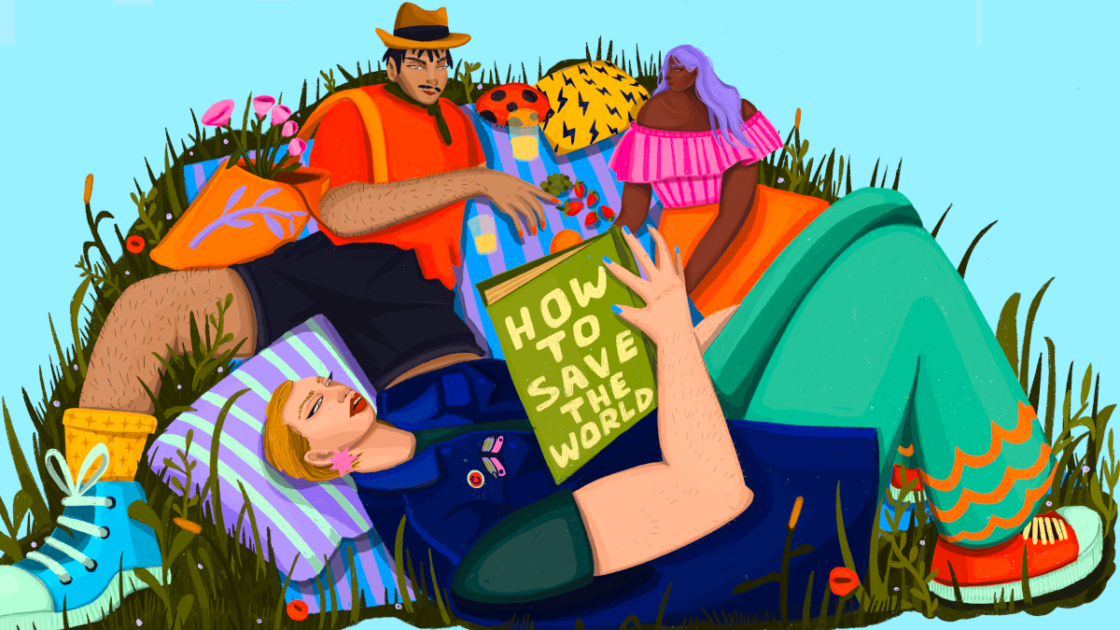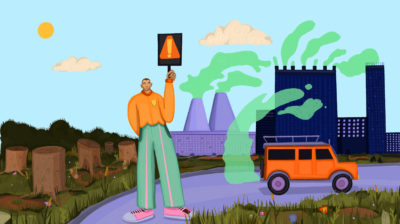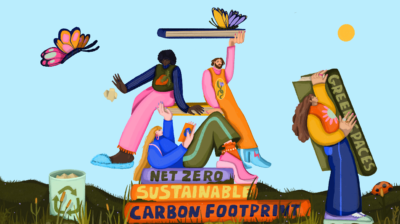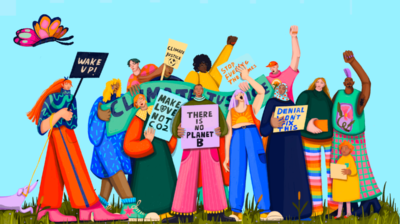5 tips for talking about the climate crisis
Confronting the scale of the climate crisis can be overwhelming and frightening and we may prefer to avoid talking about it

According to the Environmental Protection Agency (EPA), 85% of Irish people are worried about climate change. Even so, we may find it difficult to discuss it with others for several reasons. We might feel like we don’t know enough about the facts behind climate change, or that the issue is too controversial and will cause arguments with our family and friends.
Confronting the scale of the climate crisis can be overwhelming and frightening and we may prefer to avoid talking about it. However, there are ways to engage in conversations about climate change that can help address our fears, connect with others, and share knowledge.
Why is it important to talk about the climate crisis?
As individuals, we sometimes feel powerless in the face of the climate crisis. We may try our best to do our bit for the planet, but some forms of climate action are inaccessible. For example, it can be difficult for someone living in a rural area to switch from a car to public transport. Especially if the local transport links are underdeveloped. Likewise, low-income households may not be able to afford the high costs of installing solar panels.
Constructive, respectful conversation with others about climate issues and what we can do about them is something that can help bring about change. By making an effort to have open and honest conversations, we are actively supporting public participation in Ireland’s response to the climate crisis. We are also combating climate misinformation and science denial.
How to start a conversation about the climate crisis
Know the facts about climate change
It is important to inform yourself with accurate, unbiased, and scientifically proven facts about its causes and solutions. When researching online, make sure the websites you read are trusted sources of news or information. A good place to start is in reports published by scientifically credible organisations like the Environmental Protection Agency (EPA) and the Intergovernmental Panel on Climate Change (IPCC). Remember, we are all constantly learning about the climate crisis as it accelerates. You do not need to have all the facts to have a conversation about it.
If someone brings up a fact that you have not heard before or are unsure about, ask them where they found that it. You can then determine together whether the source is reliable.
Here are some articles to get you up to speed with the facts about climate change and its effects here in Ireland:
- What is climate change?
- How does climate change affect Ireland?
- What is Ireland doing about climate change?
- What is the Paris Climate Agreement?
- What is Ireland’s Climate Law?
Start a conversation, not an argument
If you are discussing climate change, try to go into the conversation with an open mind. If you think the other person will not be open-minded and genuinely consider your viewpoint, you can choose not to engage with them.
It is important to pick your battles. Having a conversation with someone who has no interest in hearing your side of things can be frustrating. However, try not to lecture or dominate the conversation, as this can quickly turn the discussion into an argument. Instead, be patient and listen to their side of things before putting your points across.
Often, having the conversation is enough and there does not need to be a ‘winner’. You may not be able to persuade them to change their mind and agree with you. However, the chances are that both of you will come away with something new to think about.
Find a common ground
For some people in Ireland, the climate crisis may feel like a far-away problem that has nothing to do with them. They might find it difficult to see how climate change affects them personally so switch off when it is mentioned.
A good way to prevent this disconnect is to find a common ground between what you both care about. Most of us care about similar things, like our friends and family, our health, our jobs, and our communities. The climate crisis impacts all of these things. If speaking to someone, you can help them to connect the dots between their priorities and the changing climate.
Give examples of how Ireland is currently experiencing the effects of climate breakdown. This can show that climate change is not a future issue or a problem for other countries to deal with. You could also explain how combating the climate crisis will create benefits for everyone. These benefits include the creation of new jobs, better health, and an equal, inclusive society.
Lead with empathy and try to see things from their perspective
Climate change is a complex issue and there are many conflicting arguments about how best to tackle it. When talking about climate change, you may find yourself disagreeing with someone’s understanding of the issue or solutions. In this situation, it is best to try and understand where they are coming from and how their opinions may have been shaped by experiences different to yours.
The thought of change is frightening and people can feel threatened by the upheaval in their lives that climate action may bring. These feelings are valid but may lead towards climate denial or scepticism. Looking at the climate crisis from another’s perspective can help you to empathise with them and understand how to address their fears.
If you discover that they have false or inaccurate information about climate change, you can gently suggest that they may have been misinformed. You can also offer to help them find more reliable sources of information. Remember, always try to stay calm and patient and avoid lecturing them.
Emphasise messages of hope
It is not uncommon to feel hopeless and anxious when thinking or talking about the climate crisis. Trying to confront the scale and complexity of climate change in conversation can be overwhelming for everyone involved.
When talking to someone about climate change, you might find the tone leaning towards despair and pessimism (believing that the worst will happen). Try to steer the conversation in a more positive direction. Focus on what you both can do for the planet rather than what you can’t.
Share the ways you are taking climate action, whether they are individual lifestyle choices or taken collectively with others. Emphasise that everyone can take part in climate action and that every action we take, no matter how small, makes a positive difference.
A conversation about climate change can be an inspiring collaborative experience. If the other person is equally as engaged with climate issues, you can connect with them by exchanging ideas and knowledge and reflecting on good news stories about climate action. It can be helpful to talk through your feelings of hopelessness and anxiety together if you both feel comfortable.
Remember, coming together to combat climate change is the best chance we’ve got to protect our planet and secure a sustainable future.
Feeling overwhelmed by the climate crisis?
- Get anonymous support 24/7 with our text message support service
- Connect with a trained volunteer who will listen to you, and help you to move forward feeling better
- Free-text SPUNOUT to 50808 to begin
- Find out more about our text message support service
If you are a customer of the 48 or An Post network or cannot get through using the ‘50808’ short code please text HELLO to 086 1800 280 (standard message rates may apply). Some smaller networks do not support short codes like ‘50808’.






